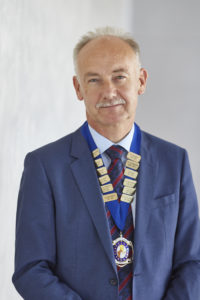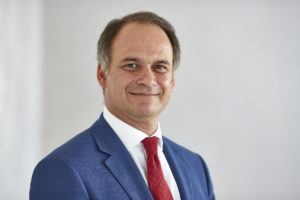 Letter from the President, Dr B Willem Schreurs
Letter from the President, Dr B Willem Schreurs
Dear Members,
Last month, my colleague Gerjan Hannink and myself published a comment in the Lancet (Schreurs and Hannink, Lancet 2017, e-pub Feb 13) on a paper written by researchers from the United Kingdom on the outcome of total hip and knee arthroplasty and the chance of having a revision of the implant (Bayliss et al, Lancet 2017, e-pub Feb 13). The title of our comment, “Total hip arthroplasty in younger patients: heading for trouble?” already addresses the subject of our publication.
The paper of Bayliss et al., based on a large UK data set of more than 63,000 total hips, showed that the younger the patient at the time of the primary surgery, the higher the chance of having revision surgery. Of course, this is common knowledge, but the way the data was reported confronts us – as the orthopaedic hip community – with a hard truth. The paper showed that the risk of having a revision of the implanted total hip in patients between 50 and 60 years old at the time of their primary surgery was up to 35% within 10 years. In addition, most hip revisions in these young patients were performed within five years of surgery.
What makes the situation even worse, is that there are very few papers in orthopaedic literature which address the outcome of hip revisions in patients under 55 years of age. Unfortunately, the few reports we do have of the outcome of these revisions in young patients are overall disappointing.
The current trend to implant total hips in ever younger patients, driven by the fact that the short-term outcomes in the first few years after surgery are mostly acceptable, is worrisome. We have to realize that we still have a big clinical problem with these younger patients. If we implant total hips in a large number of younger patients, and if we as the orthopaedic community do not improve the outcome of both the primary implant and the outcome of the subsequent revision surgery, this can lead to many patients becoming unrevisable. Both patients and surgeons need to be aware of this reality, and to consider that postponing this kind of surgery, despite the realistic limitations of patients with osteoarthritis, should probably be considered more frequently.
Your EHS President, B Willem Schreurs
...there are very few papers in orthopaedic literature which address the outcome of hip revisions in patients under 55 years of age. Unfortunately, the few reports we do have of the outcome of these revisions are overall disappointing
Dr B Willem Schreurs, EHS President
Letter from the Secretary General, Associate Prof Eleftherios Tsiridis
Dear Members,
It has been a very busy month. I saw many of you at the excellent annual meeting of the American Academy of Orthopaedic Surgeons held in San Diego. Following that, I flew straight to the UK to attend the London Hip Meeting directly afterwards. The scientific level at both meetings was top quality and hip surgery is truly advancing and is a diverse speciality I am delighted to be involved in.
Thank you to everyone who has now paid their annual membership dues, either via PayPal from this EHS website, or with a bank transfer or credit card transaction. For anyone who is not sure if they have paid yet or not, please email Samantha Stokes who will be happy to hear from you.
We warmly welcome a new Full Member this month, Prof Sebastien Lustig from Lyon in France. And finally, the two 2018 EHS Visiting Fellows will be announced in your next newsletter.
EHS Secretary General, Associate Prof Eleftherios Tsiridis
EHS Emeritus Member and previous Nat Rep for France, Dr Jacques Tabutin
Since the first EHS event in 1994 in Crete , I have attended all the closed EHS meetings and saw the society evolve from a small circle of prothesis enthusiasts to a large group, covering all the topics of hip pathology with sound scientific bases.
Being the National Representative of France since 2002 was not that easy, because French surgeons are somewhat reluctant to attend meetings in English, although it changes with our younger colleagues. One of my duties was to spread French specificities into Europe such as the “French paradox”, locked revision stems or dual mobility cups. Under the auspices of science and friendship these years were very rich.
To my successor as National Representative, Dr Jean Alain Epinette, has been devoted the organisation of the EHS 2020 meeting in France.
One of my duties was to spread French specificities into Europe such as the “French paradox”, locked revision stems or dual mobility cups. Under the auspices of science and friendship these years were very rich
Dr Jacques Tabutin, EHS Emeritus Member & previous Nat Rep for France




